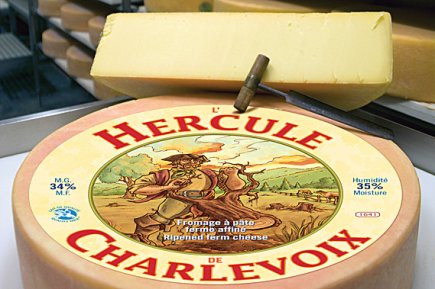The Conservatives have reached a deal with the European Union over cheese imports that opens the door to a multi-billion free trade deal with the world’s largest economy.
The political agreement on the deal has now been sent back to the provinces for final approval. If they sign off, the announcement of an agreement-in-principle could be made “within days,” said one provincial source.
Adam Taylor, communications director for trade minister Ed Fast, said work is ongoing. “Our government has been clear that a final agreement must serve the interests of all provinces and territories — our partners in this — as well as the broader interests of the Canadian economy.”
But it is understood that negotiators have agreed to double the amount of European cheese imported into Canada — to around 30,000 tonnes a year — in order to get the Europeans on board.
The talks had been deadlocked over a couple of issues: Canada’s access to European markets for beef and pork; as well as freedom for Europeans to bid on Canadian government contracts. However, the main stumbling block was the Conservative government’s reluctance to open up the protected Canadian cheese market. Currently, more than 90% of the 408,000 tonnes of cheese sold in this country is made here.
Ottawa will argue that domestic producers will hardly feel the increase in imports because the cheese market is growing by around 8,000 tonnes a year. The additional access will equate to just 4% of Canadian domestic consumption.
“In these discussions, the system of supply management has been completely protected and Canada has gained unfettered access for Canadian dairy products into the largest, most lucrative market in the world,” said Mr. Taylor.
The concession on cheese will not please the vocal lobby in the dairy industry, which has a near-monopoly on cheese sales. However, proponents of the deal point out that agriculture will be one of the major beneficiaries of more access to European markets, with farm exports expected to increase by $1-billion a year.
‘In these discussions, the system of supply management has been completely protected’
Pauline Marois, the Quebec premier, has said that her Parti Québécois government will oppose any deal that is “unacceptable” to the province — home to a large number of protected dairy farmers. Ottawa is concerned that the comprehensive and economic trade agreement (CETA) could become a political football in the next Quebec election, which could come as soon as December.
Yet Ms. Marois also signed a communiqué issued by all of Canada’s premiers at their recent summer gathering that reiterated the importance of the EU trade deal and urged the federal government to conclude negotiations.
Trade sources said Quebec or any of the other provinces could yet blow up the deal but they are optimistic. “Once the agreement-in-principle is reached, that will be the true breakthrough,” one said.
One clue that a deal is pending is the government’s effort to line up trade associations and companies that may benefit from it to commend its merits. “They’re lining up the stakeholders right now,” said one industry source.
Conservatives open door to free trade with EU after reaching cheese import deal



























Laissez un commentaire Votre adresse courriel ne sera pas publiée.
Veuillez vous connecter afin de laisser un commentaire.
Aucun commentaire trouvé